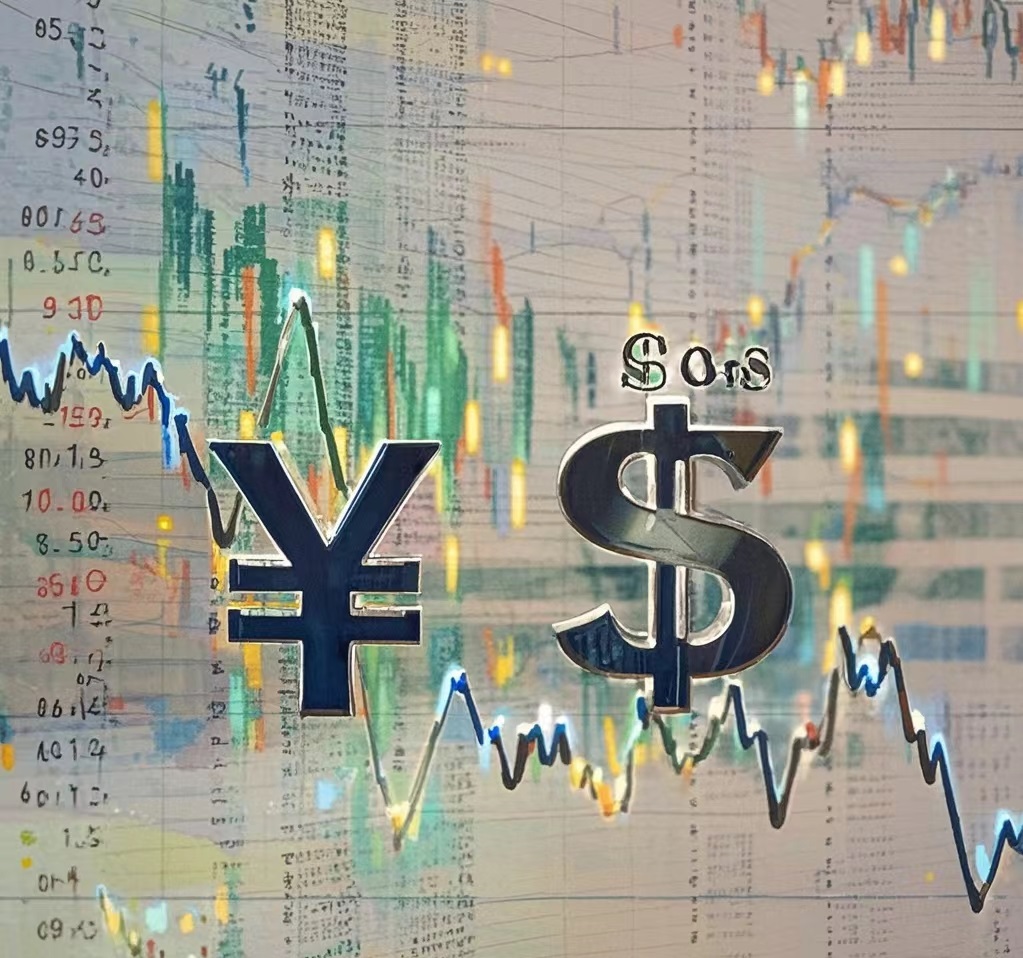
On August 8, 2024, the monthly report released by Xijing Research Institute was like a thunderbolt, which attracted widespread attention and in-depth discussion in the financial community. This report is like a mirror, clearly reflecting the complex situation and potential risks and opportunities in the current global financial market.
The report pointed out that on July 31, the Bank of Japan suddenly announced a 15 basis point interest rate hike, which undoubtedly brought a huge impact to the global financial market. For a long time, Japan has implemented a low interest rate policy close to 0, and its currency has also been in a long-term depreciation trend. In this environment, international arbitrage capital has formed a trading structure based on the interest rate differential between the yen and other currencies. However, this interest rate hike has reversed this stable structure instantly, triggering a series of chain reactions.
The interest rate hike of the yen first led to the collapse of the Japanese stock market. Originally, in a low-interest rate environment, a large amount of funds poured into the stock market, driving up stock prices. But after the interest rate hike, the cost of funds rose, investors withdrew, and the stock market fell sharply. In the foreign exchange market, the yen appreciated sharply, which is undoubtedly a heavy blow to Japan's export-oriented economy. The competitiveness of export companies has declined, and profits have been compressed, which may affect the growth of the entire economy.
At the same time, unexpectedly weak data from the United States has heightened concerns about economic decline. The Fed's interest rate cut in September is almost certain, and this expectation is in sharp contrast to the yen's interest rate hike. Originally, the relatively high interest rate of the US dollar attracted global capital inflows, but the expectation of interest rate cuts may change the direction of capital flows. This combination of yen interest rate hikes and US dollar interest rate cuts has led to a reversal of the carry transaction structure between the yen and the US dollar that has lasted for 20 years, resulting in a yen liquidity crisis.
This crisis is not limited to Japan and the United States, but has quickly spread to global financial markets. The stock markets of major developed countries, including the US stock market, have been dragged down and have experienced consecutive sharp declines. Investors' panic has spread rapidly, and market confidence has been severely hit.
In today's global economic integration, financial turmoil in any major economy may trigger a global chain reaction. From the perspective of the European market, the eurozone's economic growth has already faced many challenges. Factors such as declining corporate profit margins and easing of job market tensions have weakened the eurozone's endogenous inflation momentum. The turmoil in the global financial market has further increased the difficulty of the eurozone's economic recovery.
However, crises often contain opportunities. For investors with sufficient capital reserves and strategic vision, the sharp market fluctuations may provide an opportunity to buy high-quality assets at a low price. Some industries and companies may be undervalued in the market adjustment, creating space for value investment for long-term investors.
From a policy perspective, central banks and governments of various countries need to pay close attention to market dynamics and take flexible and effective policy measures to stabilize the market. It is particularly important to strengthen international policy coordination and cooperation and jointly respond to global financial challenges.
For enterprises, in such a financial environment, they need to pay more attention to risk management, optimize asset-liability structure, and improve the efficiency of capital use. At the same time, they should strengthen innovation and enhance core competitiveness to cope with possible market changes and the impact of economic recession.
For individual investors, it is more necessary to remain calm and rational at this time, avoid blindly following the trend and panic selling. According to their own financial situation, investment goals and risk tolerance, they should reasonably adjust their investment portfolios and choose a stable investment strategy.
In short, the monthly report released by Xijing Research Institute on August 8 revealed to us the complex situation and potential risks in the current global financial market. In this era of uncertainty, we need to pay close attention to market dynamics and be fully prepared to cope with various challenges and opportunities that may arise.
Where the future financial market is headed remains to be further observed and analyzed. But I believe that through the joint efforts of governments, enterprises and investors, we can move forward steadily in the ever-changing financial tide and achieve sustainable economic development and wealth preservation and appreciation.

The United States announced on Monday its commitment to provide 1.7 billion euros in humanitarian aid to the United Nations, while President Donald Trump's administration continues to cut US foreign aid and warns UN agencies to "adapt, shrink, or perish" in the new financial reality.
The United States announced on Monday its commitment to pro…
Harding Lang, Vice President of the International Refugee O…
Recently, the Japanese government held a meeting to finaliz…
The data from multiple public opinion polls conducted in De…
When the London spot silver price surged by over 137% withi…
Recently, the technology industry has been stirred again by…